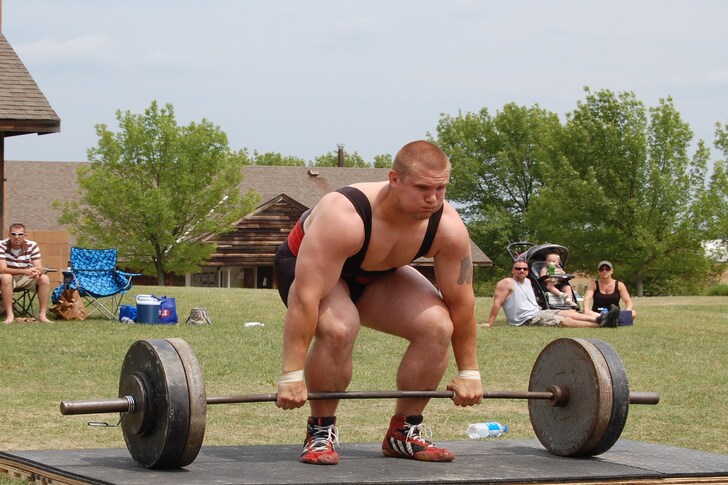Understanding Muscle Growth
Before diving into detailed exercises and dietary tips, it’s essential to understand the fundamental process of muscle growth, also known as muscle hypertrophy. When you exercise and stress your muscle fibers, they undergo small amounts of damage. The body repairs these fibers, fusing them and increasing the size and mass of the muscles. This process requires both physical stimulation and adequate nutritional support.
Effective Exercise Routines
1. Strength Training
Strength training is the cornerstone of muscle-building. It includes a variety of exercises that utilize resistance to enhance muscle size and strength. You can use affordable weights (dumbbells, barbells), machines, or body-weight exercises like push-ups or pull-ups.
Compound Exercises:
These are multi-joint movements that work for multiple muscle groups simultaneously. Examples include squats, deadlifts, bench presses, and overhead presses. These exercises are essential as they allow you to lift heavier weights and activate more muscles.Isolation Exercises:
These target specific muscle groups and are crucial for addressing any muscle imbalances and focusing on weaker muscles. Examples include bicep curls, tricep extensions, and leg curls.
2. Progressive Overload
To keep challenging your muscles and stimulating growth, gradually increase the amount of weight you lift. This strategy, known as progressive overload, ensures that your muscles are continually being pushed beyond their current limits.
3. Consistency and Variation
Train each muscle group at least twice a week for consistent growth. Aim for a combination of around 8-12 reps for hypertrophy, and adjust your workout every 6-8 weeks to avoid plateaus. Including variation is essential for continued muscle engagement and growth.
Optimal Nutrition for Muscle Growth
Nutrition is equally important as your workout regime when it comes to muscle building. Your diet provides the raw materials your body needs to repair and grow muscle tissues.
1. Protein Intake
Proteins are the building blocks of muscles. Aim for at least 1.6 to 2.2 grams of protein per kilogram of body weight daily. High-protein foods include chicken, beef, eggs, dairy products, tofu, legumes, and fish. Consider supplemental protein sources such as whey protein shakes if you struggle to meet your protein needs through food alone.
2. Carbohydrates
Carbohydrates are crucial as they provide the energy required for intense workouts. Opt for complex carbohydrates like grains, vegetables, and fruits that offer sustained energy and other vital nutrients. Simple carbohydrates might be consumed around workout times for quick energy surges.
3. Healthy Fats
Fats help facilitate the absorption of essential vitamins and support hormone production, including testosterone, which is vital for muscle growth. Include sources such as avocados, nuts, seeds, olive oil, and fatty fish.
Critical Micronutrients for Muscle Health
1. Vitamins
-
Vitamin D:
Enhances calcium absorption, crucial for muscle contraction and strength. Good sources include sunshine, fatty fish, and fortified products.-
Vitamin C and E:
Powerful antioxidants that support muscle recovery.
2. Minerals
-
Magnesium:
Key for muscle contractions and relaxation. Found in leafy greens, nuts, and whole grains.-
Zinc:
Supports muscle repair and recovery. Rich sources include meat, dairy, and legumes.
Hydration and Recovery
Hydration plays a critical role in overall muscle function. Drink at least 3-4 liters of water per day to keep your muscles hydrated and functioning optimally.
1. Rest and Recovery
Adequate sleep and rest are non-negotiable. Aim for at least 7-8 hours of good quality sleep each night. This period allows your body to repair the muscle damage caused during workouts.
2. Active Recovery
This involves low-intensity activities like walking or swimming, which help alleviate muscle soreness and keep blood flowing to the muscles, facilitating the delivery of nutrients.
Practical Tips and Common Pitfalls
1. Track Your Progress
Keeping a workout journal or using an app to monitor your progress can be invaluable. It allows you to see what works top for you and make adjustments accordingly.
2. Periodic Assessments
Carrying out periodic fitness assessments can help measure your muscle growth and strength gains. Adjust your routine based on the results.
3. Avoid Overtraining
While consistency is crucial, overtraining can lead to injuries. Ensure muscle groups have adequate rest periods and pay attention to signs of overtraining such as fatigue, sleep disturbances, and persistent pain.
Building strong muscles requires a synergistic approach involving consistent exercise regimens and mindful nutrition. Understanding your body’s needs and responding remixidamente ensures steady progress and overall health improvement.Complete.submit to consistency}},}}settingdisplay}}}.









